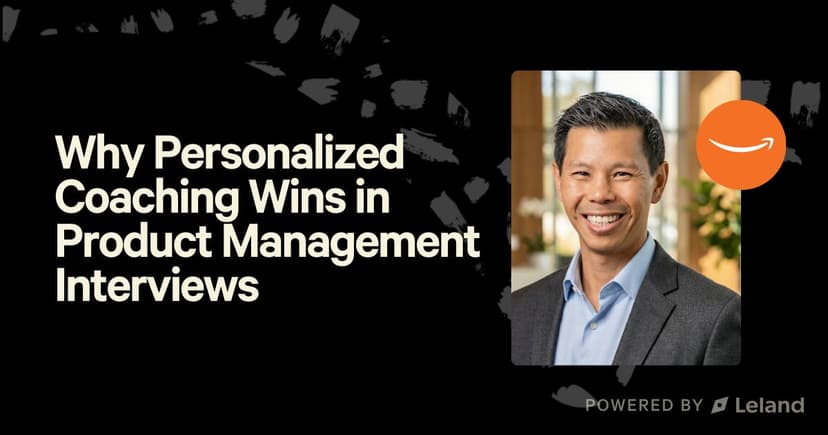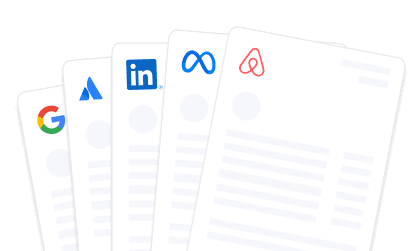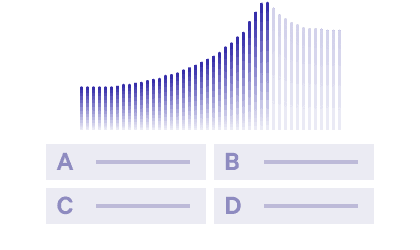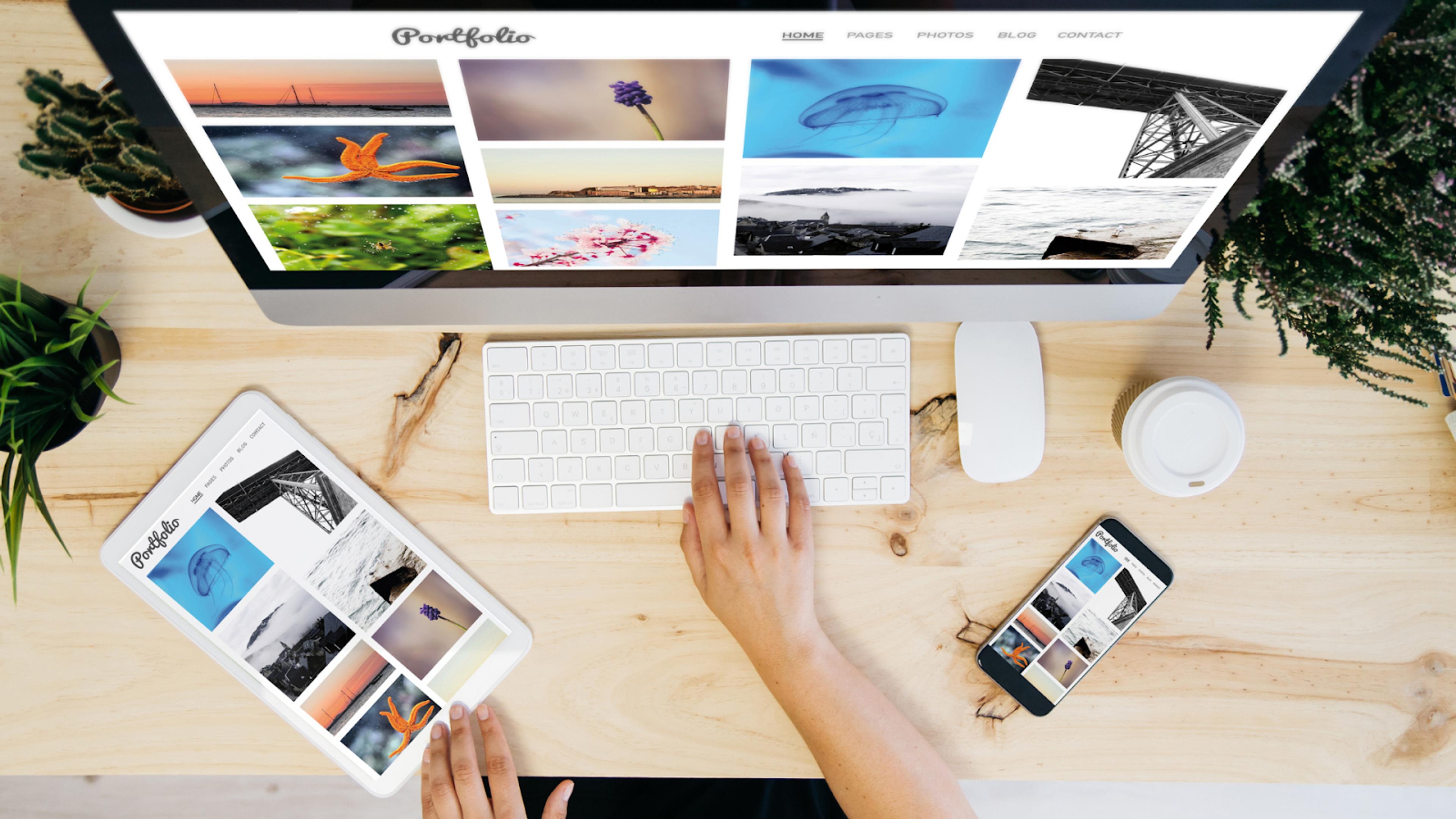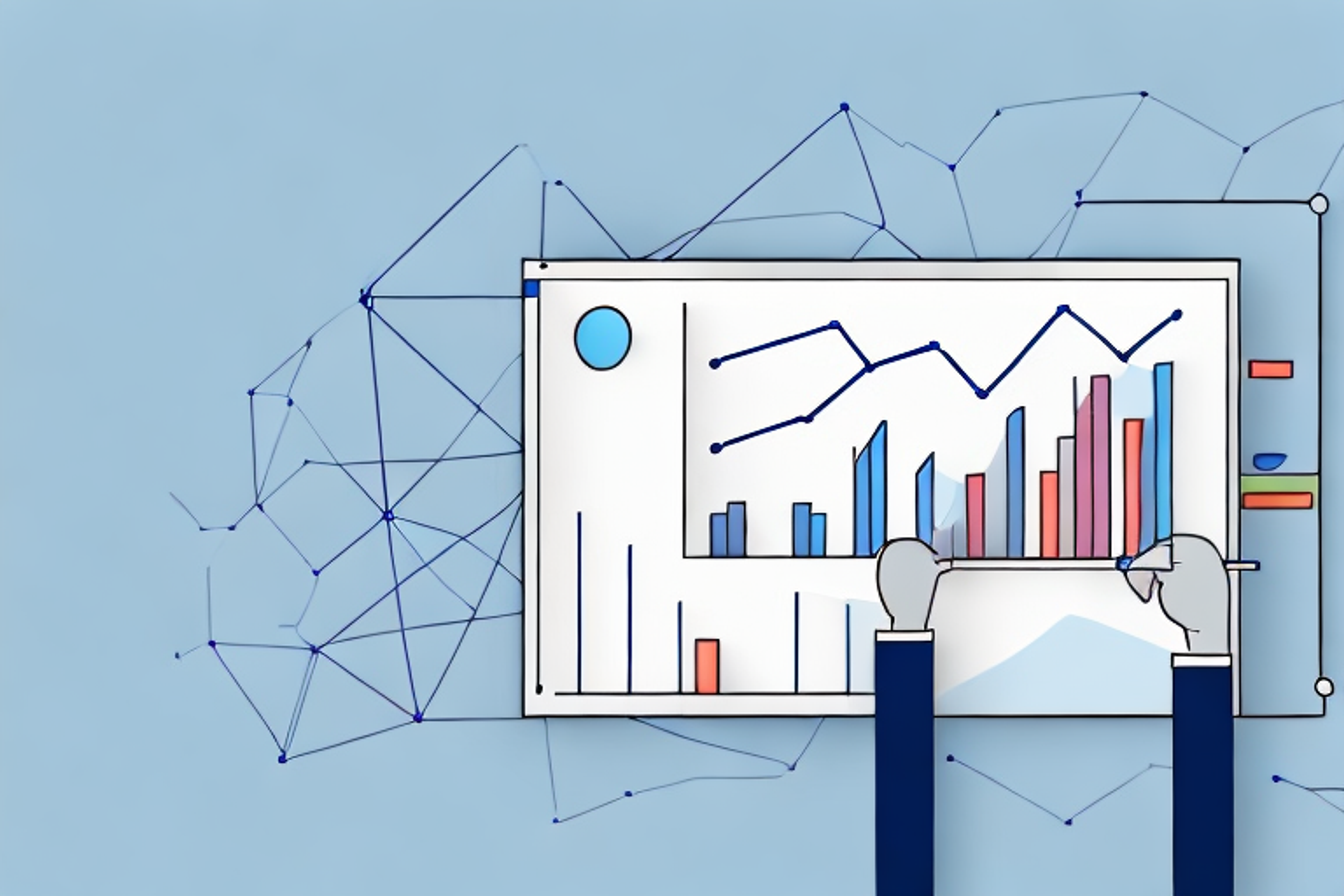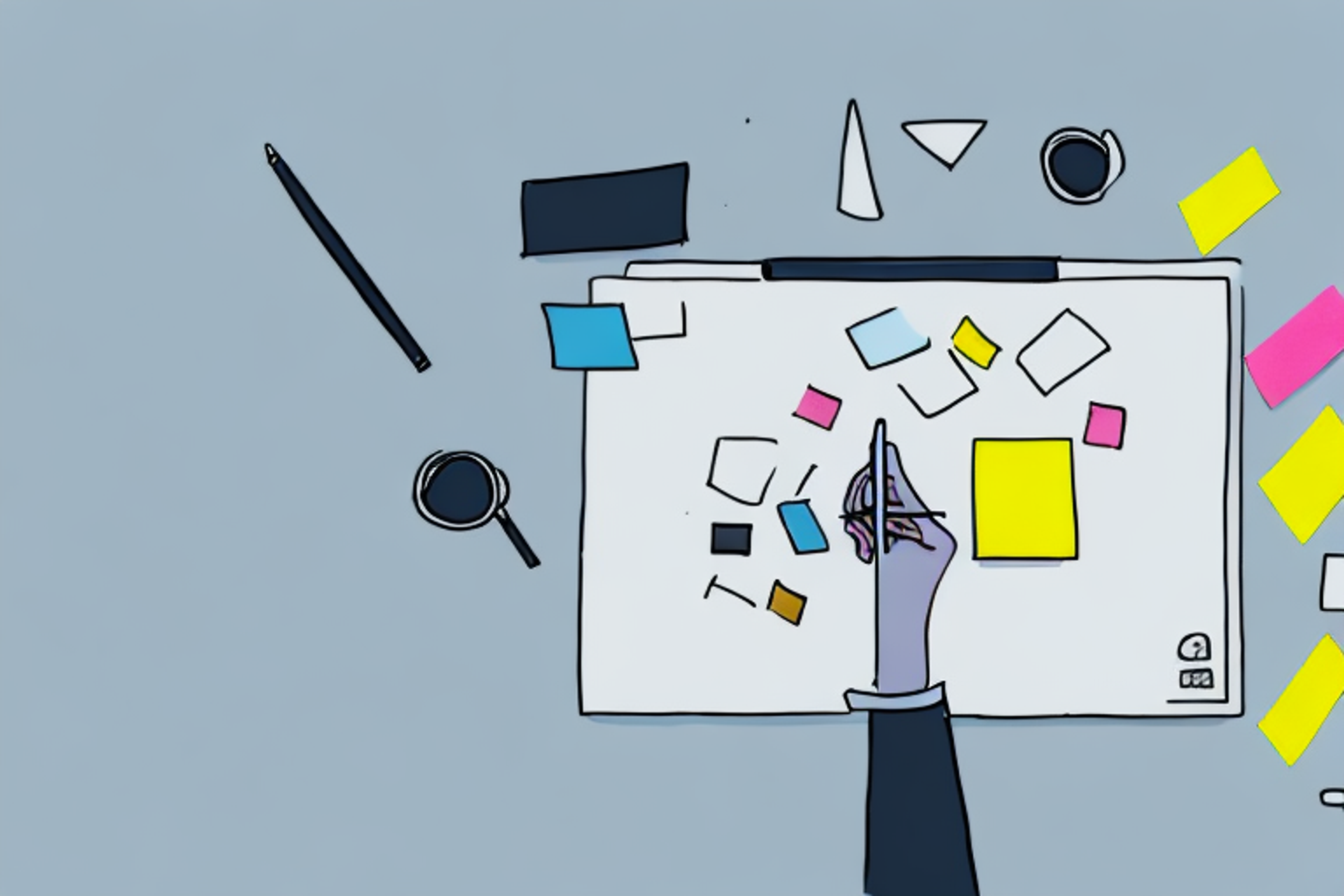How to Land a Shopify Product Manager Role: Interview Tips and Preparation
Prepare for a Shopify Product Manager role with expert tips on the interview process, case studies, technical skills, and showcasing your product expertise!
Posted October 3, 2025

Join a free event
Learn from top coaches and industry experts in live, interactive sessions you can join for free.
Table of Contents
If you're preparing for a Shopify Product Sense interview, you're likely gearing up for a critical component of the hiring process at one of the most innovative and influential tech companies today. Shopify offers exciting opportunities for product managers, from its APM program to its well-established product management roles.
This article will guide you through the essential elements of preparing for Shopify’s rigorous interview process, giving you a strategic advantage in landing your dream role.
What is a Shopify Product Sense Interview?
Shopify's Product Sense interviews are designed to test a candidate’s ability to think strategically and solve complex product challenges. These interviews evaluate your skills in managing product lifecycles, making critical technical decisions, and assessing customer needs to create impactful products.
As a Shopify product manager, you will need to demonstrate the following core competencies:
- Research and strategy – How you analyze market needs and customer feedback to inform product strategies.
- Collaboration – How you work with cross-functional teams, including data scientists, designers, and developers.
- Problem-solving – Your approach to tackling complex problems, managing trade-offs, and coming up with scalable solutions.
The interview typically includes a mixture of behavioral, technical, and case-study questions that explore your decision-making processes, technical skills, and ability to think on your feet.
Read: What is Product Management? and How to Nail Your Product Sense Interview
Shopify Interview Process: What to Expect
The Shopify hiring process is known for being thorough, but also fair and transparent. It is designed to assess both technical roles and manager track candidates, with each step focused on evaluating different aspects of the product manager role. Here’s what you can expect:
1. Application Review and Cover Letter Submission
The first step in the Shopify hiring process is submitting your application. Your cover letter plays a crucial role here; it's your first opportunity to showcase why you're the right fit for Shopify's mission to "make commerce better for everyone." Be sure to express your enthusiasm for commerce, the Shopify product manager role, and the company's values. Highlight relevant experiences that align with Shopify's core needs.
2. Recruiter Call (Pre-Screening)
Once your application is reviewed, a recruiter will likely reach out for a Google Meet or Google Hangouts interview. This is a short conversation designed to understand your background, motivation, and why you’re interested in joining Shopify. It’s an informal chat, but don’t underestimate its importance—it’s your chance to articulate your life story and how it aligns with the company’s mission.
In some cases, you may also participate in a one-hour conversational interview, an in-depth interview format with a recruiter that focuses on discussing your personal and professional experiences over an hour.
3. Product Sense Interview
The Shopify Product Sense interview is often the core of the hiring process for product managers. This round evaluates your approach to solving real-world product management challenges. Here’s what you can expect:
- Case Study: You may be presented with a product challenge or scenario that requires you to develop a strategy or solution. For example, the interviewer might ask you how to design a feature for Shopify that helps merchants improve their sales.
- Key Skills: You’ll be expected to demonstrate key product management skills, such as identifying customer pain points, using data analysis to back up your decisions, and managing trade-offs between competing priorities.
- Clarifying Questions: A critical component of this interview is how you approach the problem. Interviewers will pay close attention to how you ask clarifying questions, prioritize information, and identify the most relevant metrics or factors that influence the product strategy.
Example Product Sense Scenario:
"Imagine you’re tasked with improving the search engine feature on Shopify’s e-commerce platform. What steps would you take to approach this challenge? What trade-offs might you consider when developing this product feature?"
How to approach: Be sure to demonstrate your thought process clearly, prioritize features that address merchants' needs, and communicate how you would make technical decisions or data-driven trade-offs.
4. Technical Skills Interview
For candidates with strong technical backgrounds or those applying for roles that require knowledge of programming languages or engineering, Shopify conducts a technical deep dive interview. This round focuses on your ability to handle complex problems and make technical decisions that affect the product. During the coding exercise, you have the flexibility to solve problems in the programming language you are most comfortable with, highlighting the importance of algorithmic thinking and problem-solving skills. Depending on the role, you may be asked to:
- Solve coding challenges or demonstrate your understanding of software architecture.
- Participate in a pair programming session with an interviewer to solve a technical problem collaboratively.
For non-technical roles, this interview might still include problem-solving questions that focus on data or engineering principles. It’s essential to demonstrate how your technical skills align with the needs of the product manager role, even if you’re not a developer yourself.
Read: The Most Common Technical Product Manager Interview Questions - and How to Answer Them
5. Life Story Interview
The Life Story Interview is a more personal conversation. It’s your chance to reflect on your past experiences, growth, and challenges you’ve faced in your career. Interviewers will want to understand the experiences that have shaped your professional trajectory and decision-making process.
- Prepare to discuss – Your background, how you’ve solved problems, and how your experiences align with the values of Shopify.
- Be honest and detailed – Providing examples of specific challenges you’ve overcome and lessons learned will help interviewers assess your problem-solving skills and thought process.
6. Behavioral Interview
This interview round typically follows the Life Story Interview. The focus here is on understanding how you handle real-world situations as a product manager. Expect to be asked about:
- Handling conflicting priorities or difficult stakeholders.
- Navigating complex product decisions with limited resources.
- Working with cross-functional teams to deliver products that solve customer problems.
7. Final Interview
In the final stage, you’ll likely meet with senior team members or hiring managers to discuss your fit for the role and your potential contributions to Shopify’s next generation of products. This interview may also include a technical deep dive to assess your knowledge of the commerce industry, engineering principles, and how you would approach challenges specific to Shopify developers.
How to Prepare for the Shopify Product Sense Interview
1. Understand Shopify’s Mission and Products
At the heart of every Shopify interview is a deep understanding of their mission to make commerce better for everyone. Shopify is an e-commerce platform designed to help merchants—from small businesses to enterprise-level companies—build and scale their online stores. Understanding Shopify's wide range of products (Shopify Payments, Shopify Plus, Shopify POS, and others) and how they serve millions of merchants will set you apart.
For instance, think about how Shopify empowers merchants by simplifying complex processes like payment handling and shipping logistics. This focus on commerce solutions is fundamental to Shopify’s approach and philosophy. Be sure to showcase how your previous experience, whether working as a Shopify developer or in another product management role, aligns with Shopify’s core values. This insight will guide your answers and demonstrate your alignment with the company's business goals.
2. Sharpen Your Product Management Knowledge
- Lean startup methodology: Understand key principles like rapid prototyping and validating assumptions through data. Be ready to discuss how you’ve applied this in your past projects to iterate and improve a product.
- Agile methodology – Familiarize yourself with Agile practices, such as sprint planning, daily stand-ups, and product backlogs. If you’ve worked on Agile teams before, share how you've prioritized work and managed shifting requirements.
- User-centered design – Show your understanding of how to create products that cater to users' needs. Explain how you’ve used user research, data scientists, or UX/UI techniques to shape the user experience.
Real-world application of these methodologies is key. Share examples where you’ve successfully implemented these strategies to solve problems or achieve business objectives. Make sure to highlight how your thought process led to impactful products.
3. Prepare Case Study Scenarios
One of the most critical components of the product sense interview is handling case study scenarios. You’ll likely be presented with a problem and asked how you would address it. Here’s how to approach it:
- Use Shopify’s platform as context – Consider different features or potential improvements for Shopify’s platform. For example, how would you enhance the product search engine or optimize the checkout experience for a specific merchant demographic?
- Clarifying questions – Before diving into your solution, ask clarifying questions to better understand the context of the problem. If the interviewer presents you with a scenario that’s too broad, ask for more details about the user, market, or technical constraints.
- Prioritize and evaluate trade-offs – Product management is all about making trade-offs. If you’re asked to add a new feature, think about the business objectives, user needs, and technical constraints. How would you prioritize this new feature alongside other competing priorities?
Walk the interviewer through your thought process from problem identification to solution. Be clear about your rationale and how you arrived at your final recommendation.
4. Review Technical Concepts
- Basic programming languages – Understanding the role of programming languages like JavaScript or Python can help you appreciate what’s feasible in terms of product development. Familiarity with the backend systems or databases will also aid in discussions about product constraints.
- Technical decision-making – Product managers often make decisions that affect the technical architecture of a product. Understand concepts like API integrations, data models, and how technical decisions impact overall product performance. Be ready to discuss trade-offs between building new features and maintaining a scalable infrastructure.
While you don’t need to be an expert coder, being able to discuss technical details with engineers is a valuable skill for any Shopify product manager.
5. Practice Problem Solving
Problem-solving is a core skill for any product manager. During the Shopify interview process, you’ll be tested on your ability to think critically under pressure. Practice solving problems quickly by using platforms like Exponent, LeetCode, or other product management case study resources. These tools provide real-world case studies that will help you refine your problem-solving abilities.
Here are some additional tips for practicing problem-solving:
- Simulate time pressure – Many of the problems you’ll encounter in the interview are designed to test how you handle ambiguity and time constraints. Practice answering case studies under a set time limit to build your ability to think clearly and logically when the clock is ticking.
- Break down the problem – When faced with a complex problem, start by breaking it into smaller, manageable pieces. This will help you avoid feeling overwhelmed and will allow you to focus on solving one issue at a time.
- Explain your process – Be sure to explain how you approach problem-solving. This shows the interviewer your thought process and reasoning, even if the solution isn’t perfect.
Additional Tips for Acing the Shopify Product Sense Interview
1. Do Your Research
- Research Shopify’s competitors: Companies like BigCommerce, WooCommerce, and Squarespace are all vying for the attention of online merchants. Understanding Shopify’s unique value proposition compared to these alternatives will help you position your responses effectively.
- Impact on merchants: Shopify powers millions of merchants worldwide, from individual entrepreneurs to large enterprises. Familiarize yourself with Shopify Plus, Shopify Payments, and Shopify POS to understand the full scope of their offerings and the types of merchants they cater to.
2. Think Aloud
- Why you ask clarifying questions: If a case study feels ambiguous, explain why you’re asking certain questions to narrow down the problem space.
- Outline your approach: Describe the frameworks or strategies you’re using. For example, if you’re solving a problem related to the user experience, you might explain that you’re applying a user-centered design approach and then proceed to explain how you’d implement changes based on data.
- Admit when you're unsure: If you don't know the exact answer, be transparent about it and walk the interviewer through how you’d research or test your hypotheses.
3. Stay Calm
- Don’t rush your answers: Take a moment to think through your response, even if it means pausing for a few seconds to organize your thoughts.
- Stay composed during challenging questions: If you’re faced with a particularly difficult question or scenario, stay calm. Use strategies like breaking the problem down into smaller parts or asking for more context.
- Demonstrate resilience: The interview is not only about showing how smart you are but also how well you can adapt and navigate challenging situations.
4. Follow Up
- Personalize the note: Reference specific aspects of the conversation that you enjoyed or found insightful. This shows you’re genuinely engaged and interested in the role.
- Reaffirm your fit: Reiterate why you’re excited about the opportunity and how your experience as a Shopify product manager (or in other relevant roles) aligns with the position.
- Keep it professional: A short, polite note will suffice. Avoid generic or overly casual messages, as they could detract from your professional image.
Key Takeaways
- Product Sense interviews focus on your ability to make strategic, data-driven decisions while considering user experience and business goals.
- The interview process includes several stages, from initial screening to technical deep dives and life story interviews.
- To prepare, review product management frameworks, practice problem-solving, and familiarize yourself with Shopify's mission and products.
- Highlight your technical skills and experience with complex problems, but also show your passion for making an impact on merchants and the e-commerce industry.
Work with Product Management Coaches
Working with a Product Management Coach can provide invaluable support as you prepare for roles at top companies like Shopify. Coaches bring industry expertise and personalized guidance to help you navigate the complexities of product management interviews and responsibilities. Also, check out PM bootcamps and join free events for more strategic PM insights!
Read these next:
- How to Get Into the Google APM Program
- An Expert’s Guide to Resumes: Five Tips to Make You Stand Out
- How to Find Remote and Part-Time Product Management Jobs
- 20+ Free Product Management Resources
- The 10 Best MBA Programs for Product Management
- Product Manager Resume: The Ultimate Guide (With Examples & Template)
- Is Product Management a Good Career? PMs From Top Companies Weigh In
- Product Requirements Doc (PRD): What It Is, Examples, & Templates
FAQs
What is a Shopify Product Sense Interview?
- A Shopify Product Sense Interview is a critical component of the hiring process for product managers at Shopify. It evaluates a candidate’s ability to think strategically, solve product challenges, and make data-driven decisions while considering user experience and business objectives. Candidates are often presented with case studies or scenarios to demonstrate these skills.
How can I prepare for the Shopify Product Manager interview?
- To prepare for the Shopify Product Manager interview, focus on understanding Shopify’s mission and products, practicing case study scenarios, and sharpening your product management knowledge. Familiarity with frameworks like Agile methodology, user-centered design, and lean startup principles is crucial. Additionally, review technical concepts and practice problem-solving under time constraints.
What kind of case studies are presented during the Product Sense interview?
- Case studies in the Shopify Product Sense interview often involve solving real-world product challenges. For example, candidates might be asked to design a feature to improve Shopify’s e-commerce platform or optimize the checkout experience for merchants. These exercises test a candidate’s ability to prioritize features, manage trade-offs, and develop user-focused solutions.
What technical skills are important for a Shopify Product Manager?
- While not every Shopify Product Manager role requires coding expertise, understanding programming basics (e.g., JavaScript, Python), technical decision-making and software architecture are valuable. Skills in API integrations, data models, and scalable infrastructure can enhance collaboration with engineering teams and demonstrate technical alignment with Shopify’s needs.
Browse hundreds of expert coaches
Leland coaches have helped thousands of people achieve their goals. A dedicated mentor can make all the difference.
